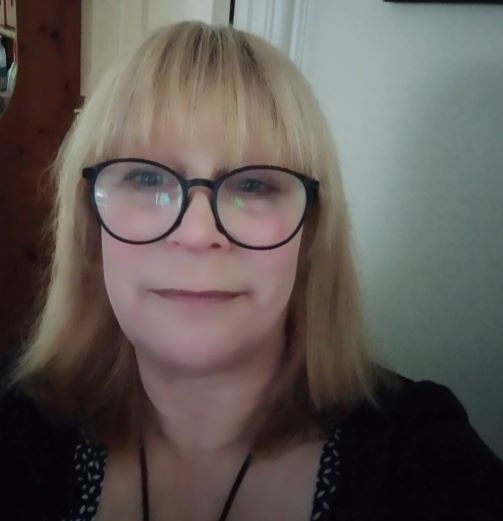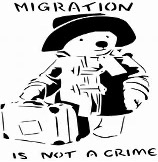Hédé Cavell is studying for a degree in History at the Open University. In this blog she invites us to imagine a world without migration, and argues that a historical perspective is vital if we are to understand how who we are today is shaped by migrations of the past. On International Migrants Day 18 December 2021 Hédé celebrates the many ways in which migrants enrich our society and offers her support for the OU’s application to become a University of Sanctuary

Imagine a world without migration. What would that be like? Would we be alive now and living in the UK? Why did our ancestors come to the UK? Was it through conflict, marriage, to work and/or study? We know that the English language evolved through migration and through the mixing of many other languages – Latin, German, French and Breton to name but a few. So where would we be today without those intrepid migrants of the past who made us who we are today? What thoughts are evoked in our reptilian brains when the word ‘migrant’ is uttered? Do our studies of past battles and invasions – things we learn about in history – reflect our primal instinct to create boundaries and protect borders? When the term migrant is mentioned, are negative thoughts about outsiders conjured? When we hear the words, ‘they want to come to Britain’ how do we react? Why is it so often assumed in media and political discourse that migrants wish only to take from and not to contribute to society? How many people realise the key role migrants have played historically in helping to create Britain today?
From time-to-time l have thought about all these questions and though I have not come up with any concrete answers they continue to intrigue me. Studying for my history degree, these questions have become much more prominent in my mind. I continue to wonder whether as a nation and as citizens, do we truly understand that migration is a continuous fact of history?
When we look back at the past and how migrants were treated – for example, from slaves to indentured labourers, we are appalled, but swiftly move forward to consider the present but what lessons have we learnt regarding the treatment of migrants in the past? We are all migrants of some sort surely? We move from one part of the country to another for many different reasons. We move abroad for climate, work and/or lifestyle. We have a choice and would say freedom of movement is our right. So, why are those who do not have that freedom of choice, who do not have freedom of movement, treated as illegal and as a criminals?
Today’s traffickers could be seen as modern-day slave traders. They can exploit migrants because no safe passage exists for them. State and governments want to protect their borders alongside their wealth and power by only allowing some migrants (highly skilled ones for example) to enter, while keeping others out. Have we made our immigration rules fit for purpose? Do our lawmakers really consider the plight of those fleeing for their lives? Do universities consider how firced migrants may not have been able to bring their qualifications certificates to assist with them accessing higher education and employment? Have we really understood the trauma and the exploitation of people fleeing Syria and Afghanistan and other conflicted countries?
What if the tables were turned, and it was you, yes you, fearful and desperate, that your house would be bombed, that you or your children could be shot, blown up or die of starvation would you want to move and take a risk or would you stay in a place of certain death and loss?
Our country, the UK, developed through the migration of people so, why are we treating migrants as third-class citizens and criminals? Is it our fear and lack of understanding of other countries cultures and customs? Or is it the lack of understanding of the devastation that they may have come from?
Imagine the difference we could make if we just stopped and took the time to see migrants as human beings and not as criminals or commodities? What if we looked at the whole person and what they could offer us and how they could enrich our lives what would we see? What could we do to make a change not for just this week but for all time so that generations to come can look back at our history and see that we did make a change that benefited all of global society? All countries need to put their selfish interests to the side and to actively listen to those seeking sanctuary. They need to find diplomatic solutions through discussions not war, and work with all countries not just the countries that agree with their own views. Imagine if we could give migrants sanctuary.
One thing we can do is to support the OU’s application to become a University of Sanctuary and to create a culture of welcome and support. To that end I invite you to take a peek at Sanctuary at The Open University | Faculty of Arts and Social Sciences.


Come and join us in making a start for a progressive future.
Comments
Submit a Comment